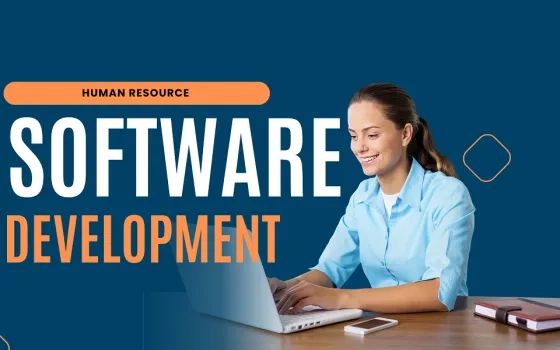The gaming industry has grown rapidly in recent years, becoming one of the largest and most profitable sectors globally. Whether you’re passionate about gaming or just looking to capitalize on this booming market, starting a gaming business can be an exciting and lucrative venture. However, like any business, it requires careful planning, a solid strategy, and the right mindset to succeed. In this step-by-step guide, we will walk you through the key elements of building a successful gaming business.
Step 1: Research the Gaming Market
Before diving into the world of game development or starting any gaming business, it's essential to understand the industry landscape. The gaming industry is vast, encompassing various sectors such as:
- Mobile Gaming: One of the fastest-growing areas of gaming, fueled by the popularity of smartphones and tablets.
- PC and Console Gaming: Traditional gaming on high-end systems continues to thrive, especially with the rise of eSports and AAA games.
- Indie Games: Smaller game studios are creating innovative, unique, and often more personal experiences that appeal to niche audiences.
- VR/AR Gaming: Virtual and augmented reality are emerging fields with tremendous growth potential.
- Web3 and Blockchain Gaming: Decentralized gaming experiences powered by blockchain technology are gaining popularity.
By researching market trends and identifying the target demographic, you can better position your gaming business to cater to the right audience. This research will also help you decide on the genre or platform for your games.
Step 2: Define Your Niche
The gaming industry is diverse, and to stand out, it’s crucial to define your niche. This niche will help you focus your resources and create a more personalized gaming experience. Popular niches within the gaming world include:
- Action/Adventure Games: These are often immersive experiences that involve combat, exploration, and story-driven gameplay.
- Simulation Games: These allow players to control real-life activities like farming, city-building, or managing a business.
- Puzzle Games: Simple yet engaging games that often appeal to casual gamers.
- eSports: Competitive gaming with professional tournaments, often requiring specific game designs and features to support multiplayer functionality.
- Educational Games: Games that aim to teach players something new, like language learning or programming.
- Mobile Games: Simple yet addictive titles, usually free-to-play with microtransactions.
Choosing the right niche can help you focus your marketing efforts and tailor your development process to meet specific player expectations.
Step 3: Develop a Business Plan
Like any successful business, a clear and well-thought-out business plan is essential for a gaming startup. Your business plan should outline:
- Company Overview: A description of your company, mission, and vision.
- Market Analysis: An overview of your target market, competitors, and trends within the gaming industry.
- Revenue Model: Decide on how you will monetize your games. Options include premium sales, in-app purchases, subscriptions, or advertisements.
- Marketing Strategy: Your approach for promoting your games, which could include social media, influencer partnerships, or SEO.
- Funding: A plan for securing funding, whether through venture capital, crowdfunding, or personal savings.
- Development Timeline: A clear roadmap for how long each stage of the game development will take.
Having a solid business plan not only helps you clarify your goals but also makes it easier to attract investors and partners.
Step 4: Secure Funding
Game development can be an expensive process, especially for high-quality games or innovative ideas. As such, securing funding is a critical step. There are several options to consider:
- Self-Funding: If you have the personal resources, you can finance your game development out of pocket. However, this option is risky and may limit your capacity to scale.
- Investors/Venture Capital: Seek investors who specialize in gaming or tech startups. Having a clear business plan and a strong team increases your chances of attracting funding.
- Crowdfunding: Platforms like Kickstarter or Indiegogo allow you to raise funds by pre-selling your game or offering rewards to backers.
- Grants and Competitions: Some governments, foundations, and companies offer grants or prizes for game developers with unique or socially impactful projects.
When seeking funding, be transparent about your plans and goals. A well-prepared pitch can make a significant difference in attracting potential investors.
Step 5: Assemble Your Development Team
Game development is a complex process that requires the skills of several professionals. Whether you’re starting small or going big, you’ll need a talented and dedicated team to turn your ideas into a reality. Essential team members for a gaming business include:
- Game Designers: These individuals are responsible for the game’s mechanics, user interface, and overall gameplay experience.
- Programmers: Game developers who write the code that brings the game to life. They handle tasks such as physics, AI, and multiplayer functionality.
- Artists and Animators: These creatives design the visual elements of your game, including characters, environments, and animations.
- Sound Designers and Composers: Audio plays a significant role in immersing players, so sound designers are crucial for creating sound effects and music.
- Marketing and Community Managers: These individuals help create awareness for your game, engage with your community, and build a loyal player base.
- Testers: Quality assurance (QA) testers ensure your game is free of bugs and delivers a seamless experience.
If you’re just starting out and can’t afford to hire a full team, consider working with freelancers or outsourcing some tasks with a game development studio. Platforms like Upwork and Fiverr are great resources for finding talented professionals.
Step 6: Choose Your Game Engine
A game engine is the software used to create and run your game. Choosing the right game engine can make a big difference in the speed, cost, and quality of your development process. Some popular game engines include:
- Unity: One of the most widely used game engines, especially for mobile and indie game development. Unity supports 2D and 3D games and offers a vast array of tools and assets.
- Unreal Engine: Known for its high-quality graphics and used for AAA games, Unreal Engine is a powerful tool but can be more complex for beginners.
- Godot: A free and open-source engine that’s growing in popularity for 2D and 3D games, especially for smaller projects.
- GameMaker Studio: Great for 2D games, this engine is accessible for beginners and offers drag-and-drop features.
- Cocos2d: Ideal for mobile games, this open-source engine is used to create lightweight 2D games.
Each engine has its pros and cons, so make sure to choose the one that best suits your game type, skill level, and long-term goals.
Step 7: Game Development and Testing
With your team and tools in place, it's time to start developing your game. During this stage, you'll go through several phases, including:
- Concept Art and Design: Creating mockups and design documents for the look and feel of the game.
- Prototyping: Developing a prototype or basic version of the game to test gameplay mechanics.
- Full Development: Building out the full game, including coding, asset creation, and level design.
- Testing and Quality Assurance (QA): Identifying and fixing bugs or issues to ensure the game runs smoothly.
Testing is crucial to the success of any game. Even after the game is released, it’s important to continually update and patch issues based on player feedback.
Step 8: Launch and Marketing
Launching a game is an exciting but challenging step. It’s not enough to simply release the game and hope for the best. You need to create a buzz and drive traffic to your game. Key marketing strategies include:
- Social Media Marketing: Use platforms like Twitter, Instagram, and Facebook to showcase your game and engage with potential players.
- Influencer Partnerships: Partner with popular YouTubers, Twitch streamers, or other influencers who can showcase your game to a wider audience.
- App Store Optimization (ASO): If you're releasing a mobile game, make sure your game is optimized for visibility on app stores by using the right keywords and high-quality images.
- Launch Events: Consider hosting a launch event or live stream to generate excitement.
- Press and Reviews: Reach out to gaming journalists and bloggers to get your game reviewed and covered by the media.
Step 9: Post-Launch Support and Monetization
After launching your game, your work isn’t over. To keep players engaged and ensure your business continues to grow, focus on post-launch support:
- Updates and Patches: Regularly update your game with bug fixes, new features, and content to keep players engaged.
- Community Engagement: Listen to your players’ feedback and foster a strong community to build long-term relationships.
- Monetization Strategies: If your game isn’t already monetized, consider integrating microtransactions, ads, or DLC (downloadable content) to generate revenue.
Step 10: Scaling Your Business
Once your first game is a success, it’s time to scale. Scaling could involve expanding your team, developing more games, or branching out into different platforms or markets. The key to scaling your gaming business is maintaining quality while growing your reach.
Conclusion
Building a successful gaming business requires a blend of creativity, strategic planning, and technical skills. By researching the market, defining your niche, securing funding, assembling a talented team, choosing the right game engine, and continuously engaging with your community, you can position your gaming business for success. Remember that the gaming industry is highly competitive, but with passion and perseverance, your gaming business can thrive and capture the hearts of players worldwide.

















